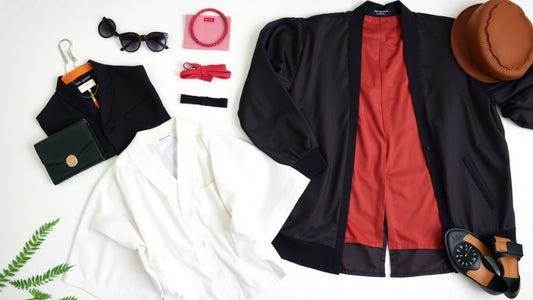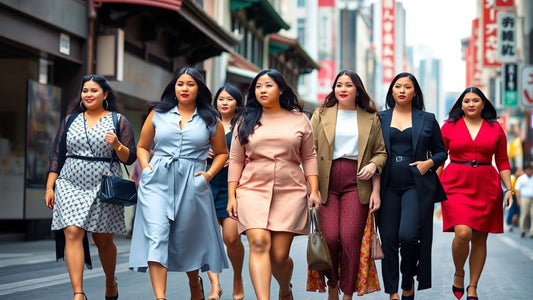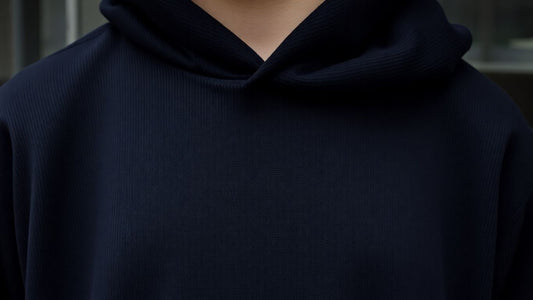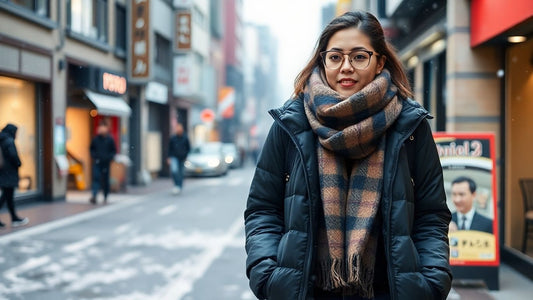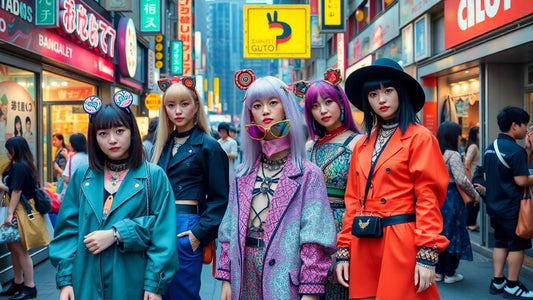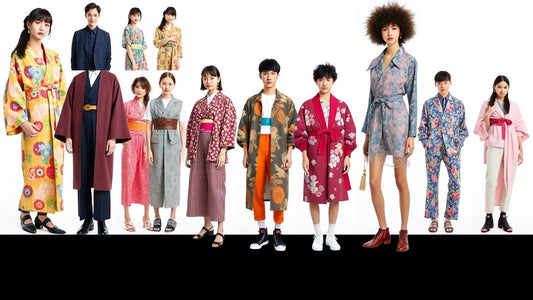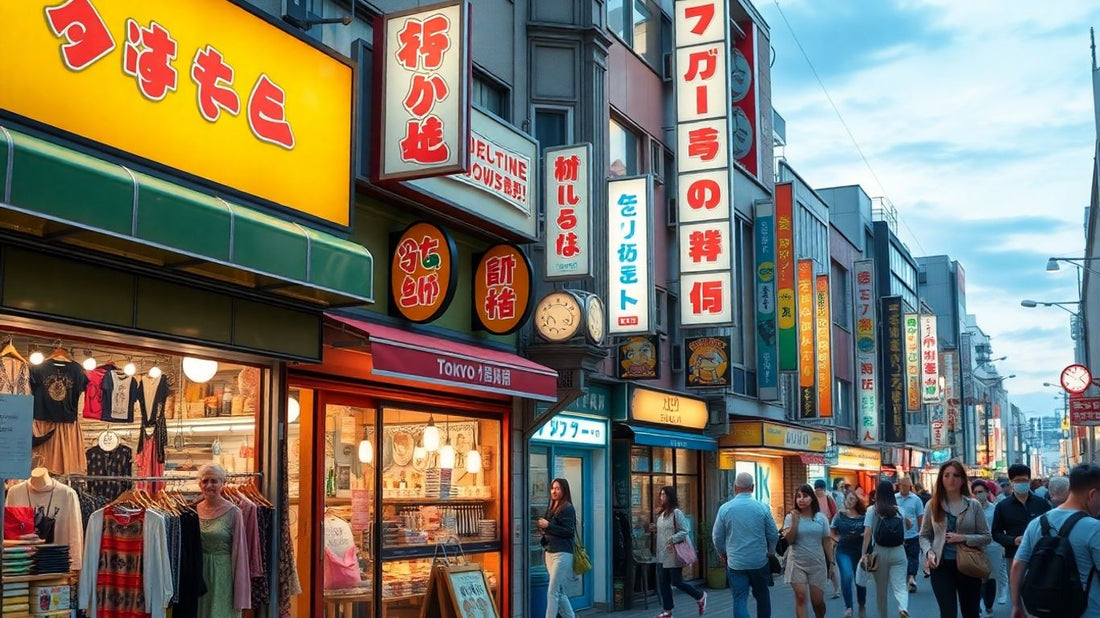
10 Hidden Gems for the Best Cheap Shopping in Tokyo: Insider Tips for 2025
Tokyo is packed with surprises, especially if you're looking to shop without spending a fortune. Over the years, I’ve stumbled into all sorts of places—tiny markets, wild discount stores, and quiet backstreets with shops you’d never find in a guidebook. If you’re after the best cheap shopping in Tokyo, you don’t need to stick to the big malls. There are hidden gems everywhere, each with its own vibe and bargains. Whether you’re a collector, a foodie, or just want to bring home something cool, these spots are worth checking out. Here’s a rundown of ten places in Tokyo where your money goes further, and shopping actually feels like an adventure.
Key Takeaways
- You don’t have to spend much to find unique things in Tokyo—small shops and markets are everywhere.
- Neighborhoods like Yanaka Ginza and Koenji have a local feel and lots of secondhand or vintage finds.
- Big chain stores like Don Quijote, Book Off, and Daiso are perfect for souvenirs, snacks, and daily stuff on a budget.
- Markets such as Ameya-Yokocho are great for cheap eats, gifts, and people-watching.
- Try exploring beyond the usual tourist spots—places like Nakameguro and Kagurazaka can surprise you with their hidden shops and affordable treats.
Yanaka Ginza
Walking through Yanaka Ginza feels like stepping into a Tokyo that hasn't vanished behind skyscrapers. This shopping street, tucked away near Nippori Station, is one of those places that just makes everyday life feel a little warmer. Yanaka Ginza stands out as a real spot for cheap shopping, where the friendly shopkeepers and old-fashioned storefronts invite you to slow down and browse.
Here's what makes shopping here special:
- Plenty of mom-and-pop stores line the street, with prices you won’t find in the city’s fancy shopping districts.
- Everyday stuff, like socks, kitchen tools, and tea cups, all go for less than what you'd pay even at many big chains.
- The snack scene is huge. Grab a skewered fried treat or a warm melon pan and eat as you shop – no one minds.
Sample Prices on Common Finds
| Item | Typical Price (¥) | Typical Price (USD) |
|---|---|---|
| Hand towel | 300 | $2 |
| Cat-themed mug | 600 | $4 |
| Croquette snack | 100 | $0.70 |
Sometimes, it’s less about checking off a shopping list and more about poking around for oddball finds – a cat-shaped pastry, a retro lunchbox, or even an old comic book you had as a kid. The pace is nothing like Shibuya’s crowds. Most shopkeepers chat with you (sometimes in rough English, sometimes just with gestures and laughs).
If you need a breather from city chaos but still want good deals, Yanaka Ginza is as real and easygoing as Tokyo gets for bargain-hunting. You might head home with more snacks than souvenirs, but honestly, that's half the fun.
Ameya-Yokocho Market
Ameya-Yokocho, known as "Ameyoko" to locals, stretches along the train tracks between Ueno and Okachimachi stations. This bustling open-air market is the place to score deals on everything from snacks and seafood to sneakers and vintage apparel. If you like a lively crowd, you'll fit right in—there's constant chatter and the scent of grilled street food floating everywhere.
Here's what you might expect to find at Ameyoko:
- Fresh seafood stalls with everything from dried squid to bargain tuna
- Cosmetic shops selling Japanese and Korean brands for less
- Casual clothing stores stacked with sportswear and street fashion essentials
- Stalls offering traditional sweets like mochi, senbei, and candies
- Sellers sometimes willing to negotiate, especially if you’re buying in bulk or close to closing time
| Item Type | Sample Price Range (JPY) | Notes |
|---|---|---|
| Sneakers | 2000–7000 | Check for discount racks |
| Dried Seafood | 300–1500 | Popular for gifting |
| Cosmetics | 500–2500 | Many limited deals |
| Snacks/Candies | 100–800 | Try before you buy in some stalls |
If your feet get sore, try some takoyaki or a taiyaki pastry along the way—these market snacks never disappoint after a day of bargain hunting!
It’s best to go in the morning or late afternoon to make the most of the deals. Many vendors are used to tourists now, so don’t be shy about asking for the best price or just chatting about what’s fresh or new in stock. For shoppers who love a bit of organized chaos, there’s really nothing quite like Ameyoko.
Nakameguro

Nakameguro is one of those Tokyo neighborhoods that often gets overlooked, but honestly, if you're hunting for affordable treasures with a local touch, you should put it right at the top of your list. This area has a laid-back canal, quirky secondhand shops, and cozy bakeries where you can hang out for hours—without spending much. Nakameguro really nails that calm, artsy vibe.
Some of the best things to check out here if you want to save yen and discover unique finds:
- Vintage clothing stores (like Vase) offering pieces with real character.
- Independent bookstores stacked with everything from photo books to hard-to-find manga.
- Small design studios with handmade jewelry and ceramics at surprisingly good prices.
If you're keen to really get under the surface in Nakameguro, keep an ear out for the new 'Walking Tours with Locals' starting this year. Residents lead you to those hidden art galleries and secret rooftop views you’d never, ever spot on your own.
| Shopping Type | Average Price Range (2025) |
|---|---|
| Vintage Clothes | 1,000 – 4,000 yen |
| Artisanal Jewelry | 800 – 3,000 yen |
| Cafés/Coffee Shops | 400 – 700 yen (drink) |
| Books (secondhand) | 500 – 1,500 yen |
On a quiet weekday afternoon, strolling the canal here feels nothing like the busy shopping centers in the city—it’s the kind of place where you pick up a treat, spot an unexpected gift, and remember why shopping small can feel so good.
If you're into neighborhoods like Koenji, known for their unique atmosphere and affordable vintage shopping, Nakameguro will easily win you over with its mix of bargains and easygoing charm.
Koenji
Koenji is the place I always end up when I want to score a deal and see Tokyo from a totally different side. It’s just west of Shinjuku, but you wouldn’t guess you’re so close to the city’s hectic parts. Koenji is a hotbed for secondhand treasures and indie finds, which makes it a paradise if your wallet is feeling light but you still want real style.
You’ll wander down old, winding lanes crowded with quirky thrift shops, retro clothing stores, and maybe a random toy shop squeezed between a café and a guitar store. The Kita-Kore Building is almost legendary—ramshackle, a little grimy, and packed with street fashion that’s hard to find anywhere else. If you like the thrill of the hunt for vintage clothes, don’t skip Sokkyō or Flamingo—they’re both packed with clothes that tell stories and have character.
Here’s what I’ve learned after a dozen trips to Koenji:
- Most stores open late (think after 11 AM), so don’t show up too early
- Chat with shop owners—they’re pretty relaxed and often have cool backstories about their stock
- Cash is king here; a lot of places won’t take cards
If you’re in town during August, make time for the Awa Odori Festival. The parade is wild—colorful dancers and noisy drums light up the night, and the whole area buzzes with energy.
On a slow afternoon, nothing beats browsing Koenji’s rows of thrift shops, maybe picking out a weird jacket, and finishing with coffee in a tiny backstreet café. It’s budget-friendly and totally unlike shopping in the city’s huge malls.
Sometimes, nearby flea markets offer even bigger bargains and more surprises. For an extra helping of cheap thrills, check out the famous flea markets in Tokyo to round off your shopping spree.
Daikanyama T-Site

Daikanyama T-Site isn’t just a spot for bookworms—walking through here almost feels like stepping into someone’s dream library but with a little something for everyone. It’s built around the legendary Tsutaya Books, but honestly, the place is much bigger than just shelves of novels. Set against leafy walkways, the site has a mix of cafes, lifestyle stores, art spaces, and even a vintage camera shop.
If you’re after hidden bargains in a chic setting, this is where you get lucky with secondhand books, magazines, music, and quirky stationery. Here’s what makes it tick:
- Shelves are packed with both Japanese and English language novels, including hard-to-find titles.
- Music lovers: find rare jazz, J-pop, and movie soundtracks in their dedicated music shop.
- Unique gifts like one-of-a-kind photo books, art prints, and retro snacks are tucked into tiny corners.
Here’s a snapshot of the types of steals you might spot on a normal weekday:
| Category | Typical Prices (Yen) | Description |
|---|---|---|
| Secondhand Books | 300 - 1,500 | Novels, art, children’s, English |
| Vintage Records | 800 - 3,000 | Music from Japan & abroad |
| Designer Stationery | 200 - 1,000 | Notebooks, pens, postcards |
T-Site feels far from the busy city—even the air seems quieter here. Most shoppers linger over coffee, leafing through their new finds, looking like they’ve got nowhere better to be.
And for music and movie buffs, impressive collections are on hand, so you can browse mixes while sipping espresso. Daikanyama T-Site isn’t the cheapest option in Tokyo, but you get surprising deals if you know where to look, plus an afternoon that feels a little bit magical every time.
Suzushiro Dining
Suzushiro Dining is the kind of place you could walk past a hundred times and never notice—tucked away on a quiet backstreet, the tiny spot only seats about eight people at a time. If you’re chasing that “hidden Tokyo” feeling and want to eat really well on a budget, this is it. The experience here is all about getting a real kaiseki meal—think multi-course, chef-prepared Japanese food—but without paying high-end restaurant prices. The chef shops for ingredients daily, building every course based on what’s freshest and in season. Some regulars say that every visit feels different because of the ever-changing menu.
Here’s what to keep in mind if you’re thinking about trying Suzushiro Dining:
- Call or book in advance, since walk-ins are almost never possible (there are so few seats, they fill up quick).
- Expect to spend about 2,500-4,500 yen per person for a full meal—a steal for kaiseki.
- The menu is set, but special requests (like allergies or dietary adjustments) are usually honored if you let them know ahead of time.
| Typical Kaiseki Course | Description | Estimated Price (yen) |
|---|---|---|
| Appetizer | Seasonal small dishes | 400–700 |
| Sashimi or Cold Dish | Fresh local seafood | 600–1200 |
| Grilled Main | Grilled fish or poultry | 800–1400 |
| Rice & Soup | Steamed rice, miso soup | 300–500 |
| Dessert | Fruit or wagashi dessert | 300–600 |
If you’re after an authentic food adventure and want to try a range of seasonal Japanese flavors, Suzushiro Dining lets you do it without the crowds or tourist traps—just honest cooking in a cozy little room. And if you love slice-of-life experiences, the atmosphere here might remind you of a quiet moment in Nichijou, just with better food.
Kagurazaka
Tucked away from the rush of Shinjuku, Kagurazaka is one of those neighborhoods in Tokyo that feels almost like a different city. The narrow, winding lanes are lined with small shops selling handmade crafts, vintage housewares, and clothing you can actually afford. You’ll stumble on stores that look like someone’s living room and stock everything from ceramics painted by local artists to quirky stationery. If you’re into cooking (or just love browsing kitchen gadgets you don’t need), you can find traditional Japanese utensils at a fraction of what they’d cost elsewhere.
Here’s what makes shopping in Kagurazaka fun and easy on the wallet:
- Dozens of tiny secondhand shops for books, music, and antiques
- Wagashi (Japanese sweets) shops offering affordable treats and even free samples
- Indie fashion boutiques run by local designers, often with seasonal sales
| Shop Type | Typical Price Range (JPY) | Highlights |
|---|---|---|
| Vintage Antiques | 500 - 5,000 | Lacquerware, dishes, decor |
| Wagashi Sweet Shops | 100 - 700 | Unique matcha and yuzu sweets |
| Indie Boutiques | 2,000 - 8,000 | Handcrafted clothing |
If you get tired, there are cozy cafés everywhere—some of them French-inspired—where you can rest your feet and enjoy a pastry without feeling rushed or out of place.
Best part? You don’t need to plan ahead. Just wander. Sometimes that’s where the real bargains show up.
Don Quijote
If you’ve ever walked past a Don Quijote store in Tokyo, you know it’s impossible not to stop and stare at those bright lights and overflowing shelves. It’s not just hype—Don Quijote is Tokyo’s all-night warehouse of discount dreams. From groceries and beauty products to costumes, quirky home gadgets, and electronics, this place is pretty much a labyrinth of bargains. Thanks to their huge range—including snacks and everyday needs—you’ll find something no matter your age or taste (affordable products galore).
You can spot Don Quijote outlets in major districts like Shibuya, Ginza, and Akihabara. Some stores stay open 24 hours, which is perfect for anyone who suddenly remembers an urgent souvenir or needs late-night shopping therapy after visiting a karaoke bar. Here’s what makes a Don Quijote run so fun:
- Themed costumes for parties or last-minute events
- Limited-time, Japan-exclusive snacks and drinks
- Bulk deals on items like toiletries, gadgets, or candy
- A quirky selection of souvenirs you probably won’t see anywhere else
| Item Type | Typical Price Range (JPY) | Notes |
|---|---|---|
| Snacks | 100 – 800 | Unique Japanese flavors |
| Cosmetics | 300 – 2,000 | Popular local brands |
| Electronics | 500 – 10,000+ | Earbuds to appliances |
| Costumes | 1,000 – 4,000 | Year-round selection |
On a late-night Donki stroll, I once spotted a businessman picking watermelon candy in a tuxedo—Tokyo really knows how to keep things interesting. It’s that mix of random finds and good prices that turns a quick stop into an hour-long adventure.
Keep an eye out for tax-free shopping if you’re a tourist—the process is simple with your passport. Whether you’re after must-try snacks or just want to wander this quirky shopping maze, Don Quijote is a classic stop for anyone hoping to stretch their yen as far as possible.
Book Off
There’s honestly nothing like scoring an absolute steal at Book Off. This chain of secondhand stores is a true favorite for both locals and travelers to Tokyo who want to save money but still enjoy shopping. It’s all about the hunt—a place where you can spend hours flipping through rows of gently-used books, manga, video games, DVDs, fashion, and sometimes even electronics, all at prices that feel almost too good to be true.
If you’re new to Book Off, here’s why you should go out of your way to visit:
- Most stores are huge, often with separate floors or areas for literature, music, and electronics.
- You’ll find loads of English-language novels and manga, though it can be hit-or-miss depending on the neighborhood.
- Many items, especially paperbacks and games, are in excellent shape—even collectibles aren’t rare!
- It’s not just books; you might stumble on a quirky souvenir, designer bag, or even a classic vinyl record.
Here’s a snapshot of the types of deals you might find in 2025:
| Item Type | Typical Price Range (Yen) |
|---|---|
| Paperbacks | 110 – 350 |
| Manga volumes | 100 – 500 |
| Console Games | 500 – 3,000 |
| DVDs/Blu-rays | 200 – 1,500 |
| Brand Clothing | 500 – 4,000 |
Book Off is where you go if you love browsing, don’t mind getting your hands a little dusty, and want to shop smart on a Tokyo budget. Some days you’ll walk away with nothing, but when you land on that perfect find, it’s the best kind of thrill.
Daiso
If you're traveling through Tokyo and trying to stretch every yen, it's impossible to skip Daiso. Daiso is the king of 100-yen shops, known for its massive selection of surprisingly good stuff—all for about the price of a convenience store coffee.
Let’s break down what makes this place an absolute must:
- You’ll find everything from snacks and kitchenware to DIY tools, home décor, stationery, and even cosmetics, all lined up together.
- The quality, honestly, is way better than you’d expect for such low prices—no wonder locals shop here every week.
- Branches aren’t hard to spot; the Harajuku flagship, especially, draws crowds with seasonal items and limited-time-only designs.
- Perfect for grabbing affordable souvenirs, lightweight household goods, or quirky Japanese gadgets you probably didn’t even know existed.
- There’s no sneaky surcharge—all items are clearly marked, so there’s no confusion at checkout.
Here’s a simple table of Daiso’s most popular cheap finds in 2025:
| Item Type | Typical Price (JPY) | Popular Example |
|---|---|---|
| Stationery | 100–300 | Gel pens, planners |
| Kitchen Tools | 100–500 | Bento gear, utensils |
| Skincare | 100–400 | Face masks, lotions |
| Home Goods | 100–500 | Storage bins, towels |
| Snacks | 100–150 | Japanese sweets, chips |
A few tips for newcomers:
- Be prepared for crowds, especially on weekends—locals and tourists both flock here.
- Check out the seasonal corner; it’s always changing and packed with fun items.
- Bring a big shopping tote or backpack. You’ll leave with more than you planned, guaranteed.
Don't expect every Daiso to carry the same stuff—if you see something you love, grab it now because it might not be there when you return. This place makes last-minute gift shopping stress-free and oddly fun.
Wrapping Up: Tokyo’s Best Cheap Shopping Awaits
So, that’s a wrap on our list of Tokyo’s best hidden gems for cheap shopping in 2025. Honestly, there’s something kind of thrilling about hunting for bargains in this city—one minute you’re in a tiny thrift shop, the next you’re grabbing a snack at a bustling market. Whether you’re after quirky souvenirs, vintage clothes, or just want to see what’s out there, Tokyo’s got you covered. Don’t stress about finding the perfect spot—sometimes the best finds are the ones you stumble on by accident. Bring some cash, keep your eyes open, and don’t be afraid to wander off the main streets. Who knows, you might just end up with a suitcase full of treasures and a bunch of stories to tell. Happy shopping!
Frequently Asked Questions
What is the best time of year to shop for deals in Tokyo?
The best times to find great deals in Tokyo are during the summer and winter sales. Summer sales usually start in late June and last through July, while winter sales begin in early January and go until mid-February. During these periods, many stores offer big discounts.
Do I need to bring cash when shopping in Tokyo?
It’s a good idea to carry cash, especially when shopping at small stores or local markets. While bigger stores and chain shops often accept credit cards, many smaller places are still cash-only. You can also use prepaid cards like Suica or Pasmo for convenience.
Are there any tips for shopping at Tokyo’s thrift stores?
Yes! When visiting thrift stores, check for seasonal sales and don’t be afraid to browse every corner for hidden treasures. Stores like Book Off often have great deals on secondhand books, games, and electronics. Always look for unique items you can’t find elsewhere.
Is it okay to bargain or tip in Tokyo stores?
No, bargaining and tipping are not common in Japan. Prices are usually fixed, and the service is excellent without the need for tips. Just pay the price shown and enjoy your shopping experience!
Where can I find the best cheap souvenirs in Tokyo?
Markets like Ameya-Yokocho and stores like Daiso are perfect for finding affordable souvenirs. You can pick up snacks, keychains, traditional crafts, and other fun items without spending a lot of money.
Can I get tax-free shopping as a tourist in Tokyo?
Yes, many stores in Tokyo offer tax-free shopping for tourists. Just bring your passport and look for stores with a 'Tax-Free' sign. You’ll need to spend a certain amount, usually around 5,000 yen, to qualify.
